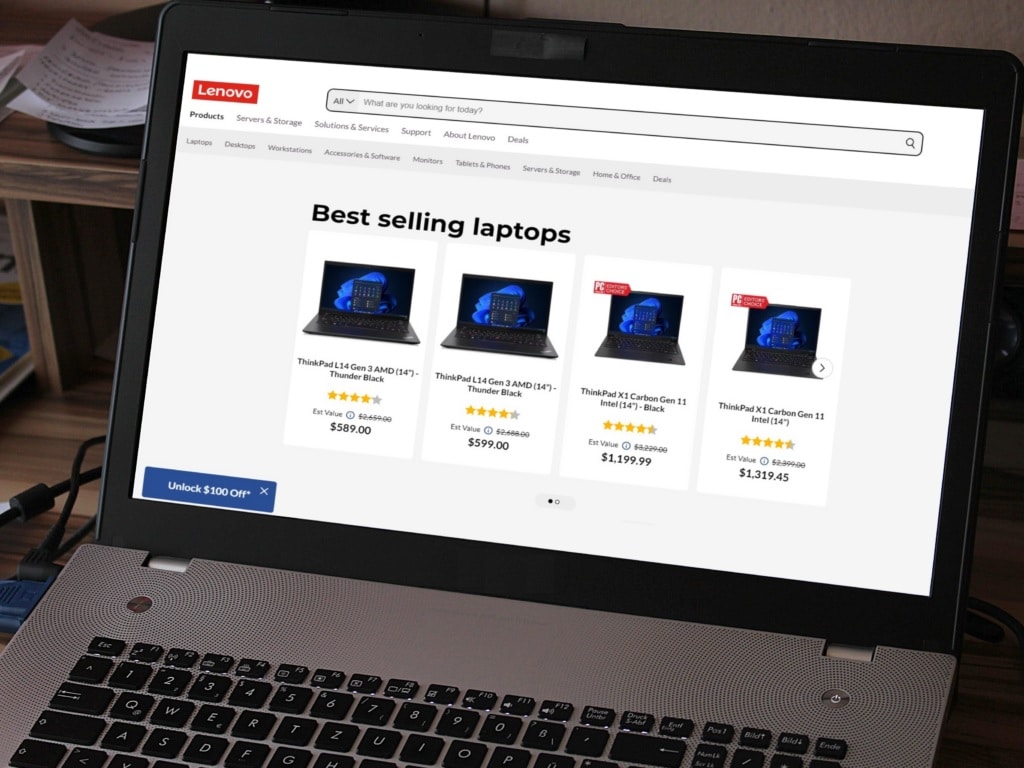
If you’re looking to get a deal on a new computer for the holidays this year, don’t be taken in by a “fake coupon code.”
A computer company that’s been accused of advertising fake discounts in the past is once again the target of a federal lawsuit, claiming the company has not changed its ways.
Three California residents have sued Lenovo, the Chinese-owned company that is currently the world’s largest maker of personal computers. They’re accusing the company of “advertising false and misleading price reductions” and displaying “fake coupon codes” on its website, leading unsuspecting shoppers to believe that they’re getting a great deal when they might not actually be.
And what exactly is a “fake coupon code”? Plaintiffs Mark Hermanson, Chun-Yu Chen and Shuang Lin say Lenovo’s “eCoupons” displayed on its website are made-up offers meant to “mislead consumers into believing they are receiving a price reduction.”
“Unlike typical online retailers which require shoppers to manually enter a coupon code to receive the associated discount, Lenovo’s coupon codes are prominently displayed on its website and do not require shoppers to take any action to receive the advertised discounts,” the plaintiffs’ lawsuit reads. The coupons, they say, leave shoppers with the impression that they are limited-time offers, when in fact they are always available and are automatically applied to a shopper’s order. So the “coupons,” they say, are more of a permanent price reduction than a temporary discount one would normally associate with a coupon.
But that’s only part of the problem, they say. They also accuse the company of displaying “an artificially inflated reference price near the sale price, and then telling consumers they are ‘saving’ money based on the difference… In reality, the advertised savings are fictitious.”
Worst of all, the lawsuit states, is that Lenovo has been sued over similar issues before. Back in 2013, the plaintiffs point out that Lenovo settled a threatened lawsuit before it was filed, compensating consumers and agreeing “to change its methodology for online consumer advertising.” Three years later, though, Lenovo was sued again. That case, too, ended in a settlement. And five years later, Lenovo was sued yet again, by two consumers who claimed its website featured “false regular prices,” fake discounts, and that “Lenovo’s eCoupons are a sham.”
That case is still ongoing. Without even waiting for an outcome, this newest lawsuit piles on, claiming that Lenovo has been “willfully advertising false and misleading price reductions on its website for more than a decade,” despite “knowing full well that advertising false discounts was unlawful.”
By displaying inflated regular prices and “fake” coupons, Lenovo’s “discounted” prices may not actually represent discounts at all, the lawsuit alleges. “The pervasive, ongoing nature of Lenovo’s deceptive pricing practices and its persistent refusal to represent the actual regular price and value of its products demonstrate that the use of false and misleading price reductions is central to its overall marketing strategy,” the lawsuit reads. The fact that Lenovo has not changed its ways despite several legal challenges shows that “it is more profitable to mislead consumers and settle an occasional lawsuit than to comply with the law,” the plaintiffs argue.
The plaintiffs want Lenovo ordered to change its pricing practices, and they’re seeking compensation for themselves and any other consumer who’s been “duped by any form of Lenovo’s false price reductions.” Lenovo has not yet filed a formal response to the allegations.
So as this case plays out, let the plaintiffs’ accusations serve as a warning in the midst of the busy holiday shopping season. Everyone is looking to save money as they shop for gifts – but some discounts may not be what they seem.
Image source: Mockupr/Lenovo










